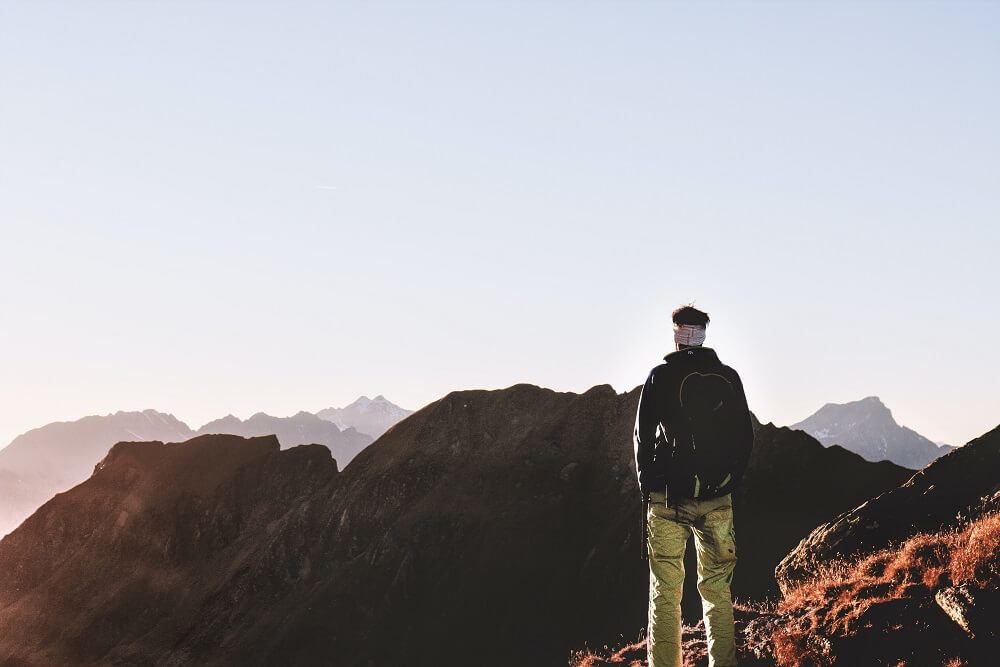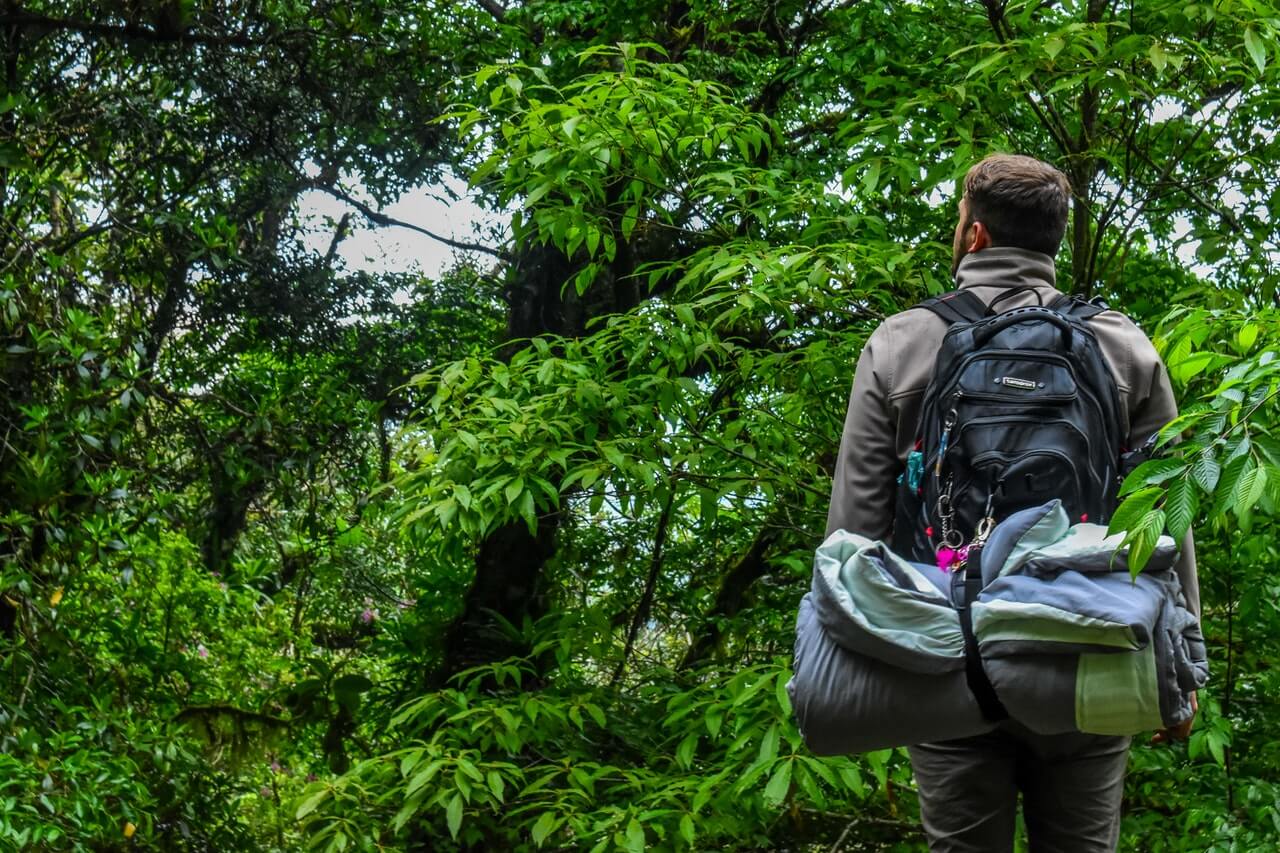The hike to the top is not the end, but a safe return home, some easy to ignore, but you must be aware of the dangers. Top Four Dangers of Hiking and Prevention
1、Loss of temperature
How horrible is the loss of temperature? It will quickly cause damage to the core of the body. We generally classify the loss of temperature as mild (33~35℃), moderate (28~32℃) and severe (below 28℃).
Mild loss of temperature will cause the body to shiver and turn pale; moderate loss of temperature will cause cognitive decline and blurred consciousness; and severe loss of temperature will cause us to lose consciousness and heart and lung failure. The colder the outside temperature, the higher the wind and the higher the ambient humidity, the more likely the loss of temperature will occur.
During one of our road trips through the Rock Line, it rained non-stop, and the mixture of sweat, rain, fog and dew made many team members' bodies soaked. A little brother lost his temperature, and later he shared, "I just couldn't stop shivering, and I wanted to sleep all the time. At first I didn't think of it as a loss of temperature because it was summer, but then I finally realized it was a loss of temperature, and fortunately it was only mild."

How to prevent & deal with it?
- Be sure to familiarize yourself with local weather conditions in advance and prepare appropriate clothing.
- Choose underwear that is quick-drying and sweat-wicking, don't just focus on rain and snow protection and ignore the risk of losing temperature caused by heavy sweating.
- Do not let your body temperature fall below the temperature of your destination. To resist -20~30 degree night weather, for example, upper body: undershirt + shirt + woolen sweater + down undershirt + down jacket (700-750 puffs) + rash jacket. Lower body: threaded pants + woolen pants + down pants + rushing pants. Head: Hat, must be separate. Feet: thick wool socks + outdoor shoes.
- Do not expose to wind and snow for a long time, and choose a sheltered place for camping.
- Carry enough high-calorie food.
- Once there is a loss of temperature, enter a warm place in time to ensure the temperature of the core body area and seek medical attention as soon as possible.
2、Storm
Rainfall of 16 mm or more in one hour, or more than 30 mm in 12 consecutive hours, 24 hours of rainfall of 50 mm or more, commonly known as "heavy rain".
Heavy rains usually bring flash floods, lightning strikes, landslides, and wet slides, all of which are "good" at hurting people. If you have seen the flash floods sweeping everything, you know how little human power is at this time.
How to prevent & handle?
- First of all, try to avoid traveling in the summer when heavy rainfall is common, such as must go, always pay attention to the local weather.
- prevent rain, take out the good rain gear that you carry and get down in time.
- lightning strike prevention. open space where there is nowhere to hide, should immediately squat, lower the height of the body, turn off the cell phone, away from isolated trees, teammates do not hold each other.

- Prevention of flash floods and landslides. Mountain streams and rivers will surge after heavy rain, you should take shelter in time. When crossing a river, try to find a place with slow flow and shallow water depth to wade across the river, it is worth spending a little more time. Also steep slopes and places with poor vegetation cover are prone to landslides and should be avoided as much as possible.
- Anti-slip, this one is particularly easy to ignore, pay attention to wear non-slip hiking shoes (some V-soled shoes have a strong grip, but not very non-slip, pay attention to distinguish).
3、Detachment + lost
These 2 things have a mutual relationship. Because each person's physical quality, carrying different supplies, resulting in different progress of each person's hiking, some people fast, some people slow. If you are in a wild group, it is easy to get out of the group if you are behind the group. If you are not familiar with the local road conditions, it is very easy to get lost.
How to prevent & handle?
- Insufficient strength, do not form a wild team, but choose a team with logistical support.
- If you are not familiar with the road conditions, do not blindly find your own way out, the most sensible choice is to wait for help in place or nearby.
- carry a small strong flashlight and life-saving whistle outside and other distress tools, in obvious locations, establish signs (such as the use of rocks or branches to mark the direction, etc.).
- put distress fireworks, collect points of damp branches and leaves, weeds, ignite and ask for help from the outside world with the help of a lot of smoke and dust.
- If rescue is not possible, then remember the mantra: go big not small, go low not high, go bright not dark, go water not dry, go flat not dangerous, go familiar not raw.
4、Mosquitoes, insects, rodents and ants
To prevent the infestation of all kinds of small creatures. By mosquito bites, bee stings may seem like a small thing, but the continued itching, swelling and pain can wear down your will to hike down, you can see in many survival programs, wilderness survival experts will use mud coated all over the body to prevent mosquitoes. In addition, highly venomous snakes and spiders, although the chances of encountering them are small, can threaten human life, so it is important not to miss.
How to prevent & deal with?
- carry anti-mosquito spray or medicine, such as products containing mosquito-repellent amines.
- wear pants with tight legs or tied into shoes to avoid ankle part exposed.
- Beware of insects in the trees above your head, branches and weeds beside you.
- When you encounter a road covered by weeds, you can use hiking poles and hard branches to explore the road.
- Do not take the initiative to provoke them.
- If necessary, timely withdrawal to find rescue.


